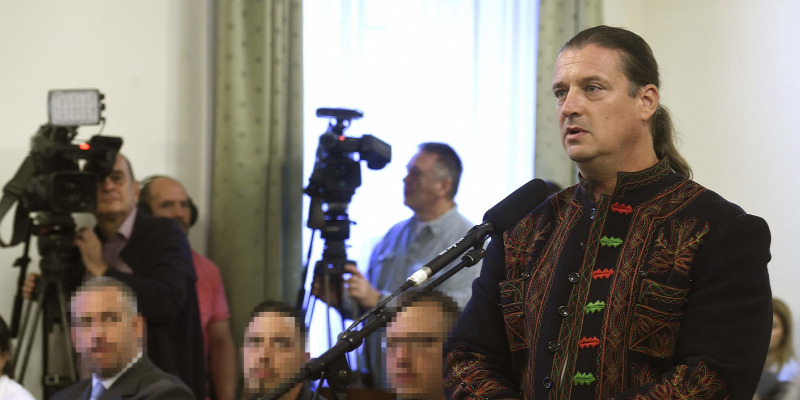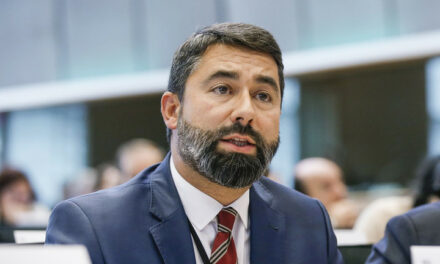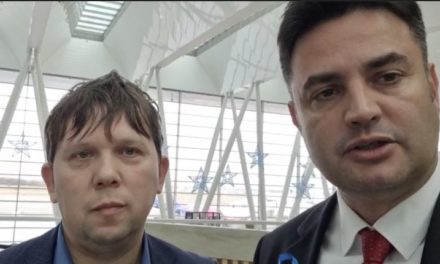The Kúria canceled the arrest of György Budaházy and ordered his criminal supervision. He stipulated that he cannot leave the property where he resides and ordered the use of a technical device to track his movements, the Supreme Judicial Forum announced on Friday.
The announcement posted on the Kúria's website only mentions by monogram the order issued in the ongoing case against B. Gy. and his associates for the crime of terrorism and other crimes.
In justifying its decision, the Court explained: the Capital Tribunal correctly established that the 17-year prison term imposed by a non-final sentence carries with it the risk of escaping and hiding, and the fact that the defendant was interrogated as a suspect for a new crime punishable by imprisonment raises the risk of recidivism.
At the same time, the accused showed impeccable behavior during the proceedings - they continued - he complied with the summonses and remained available even when he was not legally sentenced to a prison sentence of a similar duration. According to the Court, the risk of recidivism is reduced by the fact that György Budaházy's new suspect interrogation took place in such a way that ten years had passed between the acts forming the basis of the current procedure and the new suspicion, and then three more years had passed until the accused was suspected in the new case.
The Court also pointed out that during the periodic review of the justification of the arrest, it must always be thoroughly investigated whether the goals to be achieved can be achieved with a milder coercive measure that restricts personal freedom. This is particularly relevant if the criminal proceedings are significantly prolonged. This does not change even if the defendant is not subject to the most severe coercive measure that deprives him of personal freedom throughout the protracted proceedings.
The purpose of coercive measures is always to ensure the smoothness of the proceedings: that the accused does not run away or hide during the proceedings, or that he does not commit another crime during the proceedings, the Court pointed out. They added: in the case of extreme protraction of the procedure, the requirement to use the mildest coercive measure with the least restriction of freedom to ensure the procedural goal to be achieved is enforced. In order to eliminate these dangers, the use of criminal supervision in this case is appropriate, they concluded.
MTI
Photo: MTI/Noémi Bruzák












